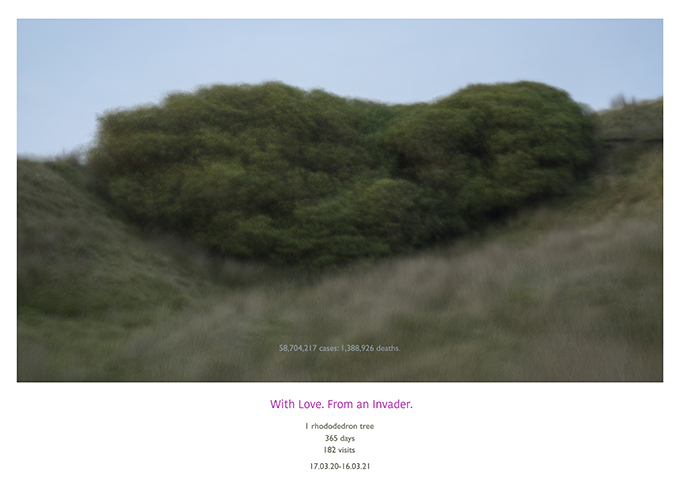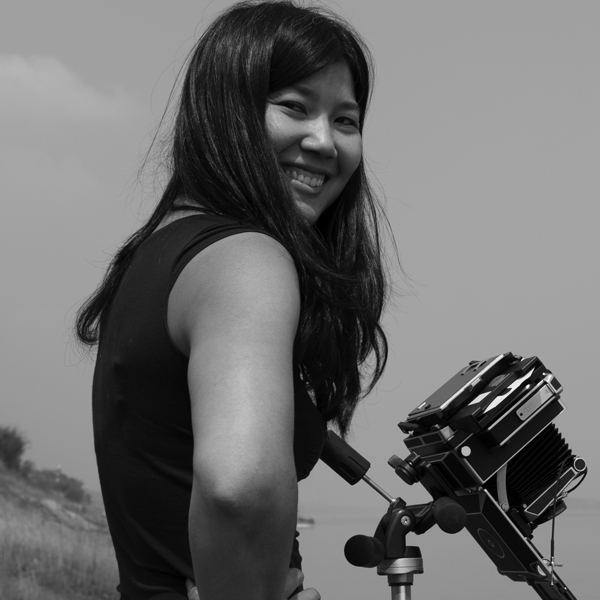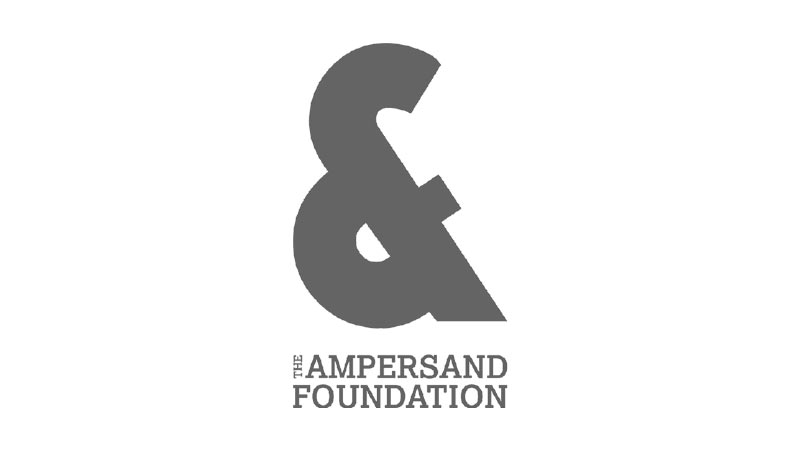With love. From an Invader, 365 days, 2020 – 2021
‘Control’ – the theme of this year’s FORMAT festival – denotes power, oppression, and reaction. We all want to “take back control”, seeking to control our own lives while resisting control by others. Using photography to impose structure and encourage contemplation of our relationship to each other, time, and the natural world, Yan Wang Preston’s work is a fitting addition to the festival’s programme this year.
‘We can be in control, out of control, beyond control. Control can be passive, progressive and aggressive. It can provide opportunities or suppress ambitions.’
“If you don’t control your mind, someone else will” – John Allston
Rhododendron is a much-loved plant in China, her motherland, but is considered an invasive species here. Yan’s project considers the politics of natural space; the growing rhododendron becomes an image at once benign and dangerous.
For this project, based in the post-industrial, post-colonial landscape of the South Pennines, Yan photographed a single heart-shaped rhododendron bush every other day, at half an hour before sunset, for a year, during the COVID-19 pandemic.
Yan took up photography after emigrating to the UK in 2005; like the subject of her work, she is thriving in an environment to which she is not indigenous. One can compare her rhododendron to David Hockney’s trees; just as Hockney presents seasonal change using multiple camera and screen stop-frame animation in his work such as Woldgate Woods (2010-2011) or Four Seasons (2017), so Yan documents a year in the life of a plant.
Like Olafur Eliasson, who documented growing land fissures in Iceland in his Fault Series (2001), Yan imposes a controlled format to highlight environmental issues. The structure of photographing the rhododendron at the same time of day, every other day, for one year, also provided the structure for Yan to explore the theme of identity and belonging.
To complement the project, Yan uses Instagram @yanwangpreston to plot the changing seasons and the daily growth of the rhododendron against the spread of the COVID-19 pandemic; each post notes the number of new cases, new deaths, total cases, and total deaths. In choosing this format, Yan is able to present the positive and negative simultaneously.
Yan says, ‘An alien species sending out love — it can be a rich metaphor to anchor my investigation of these issues around landscape and identity… Living as an immigrant in a country going through Brexit, I feel a strong personal connection with such invasive plants. They remind me of my homeland as well as the complex perceptions around nature, national identities, landscapes and migration.’
Yan’s interest in the association between identity and nature follows on from her Sony World Photography Award winning work Forest (2010 – 2017), about reforestation in China, and her project Mother River (2010 – 2014), which presented an unconventional mapping of the Chinese river to reveal its true identity through topography. Unlike her contemporary Luo Yang, who also deals with the theme of identity, Yan chooses not to work in portraiture, but to create an external, contemplative space that is objectively monitored and recorded.
In Mother River, for example, she photographed at 100 kms intervals along the 6211 km river, resulting in 63 photographs. Her photographs are not pretty picture postcards of iconic views. Instead, they depict apparently mundane scenes of everyday life in China. Travelling West to East, Yan avoided concrete structures and Shanshui-like landscapes. Viewing China with fresh eyes, she took back control of the narrative.
Yan’s work can be interpreted in the context of Land or Environmental Art, pioneered in the 1960s and 70s to address social and political issues relating to the natural world. However, unlike Land artworks such as Mary Mattingly’s garden barge Swale (2016) or Maya Lin’s’ Storm King Wave Field (2007 – 2008); or photographer Nancy Holt, whose work observes natural phenomena like the solstices or stars, as in her 1976 work Sun Tunnels; or Hungarian artist Agnes Denes who created Wheatfield : A Confrontation (1982); Yan observes the changing landscape with an aesthetic perception which enables viewers to contemplate the nature of change.
With love. From an Invader, 365 days, 2020 – 2021 has become a collaborative work; Monty Adkins, a sound artist, is composing a soundscape for the piece. Yan is also incorporating other collaborators, particularly non-native British residents, to explore their complex sense of belonging and shared experience of racial discrimination. The collaborative work is expected to be completed towards the end of 2021, with photography finishing on 16 March 2021.
By Paula Vellet
all images © Yan Wang Preston













